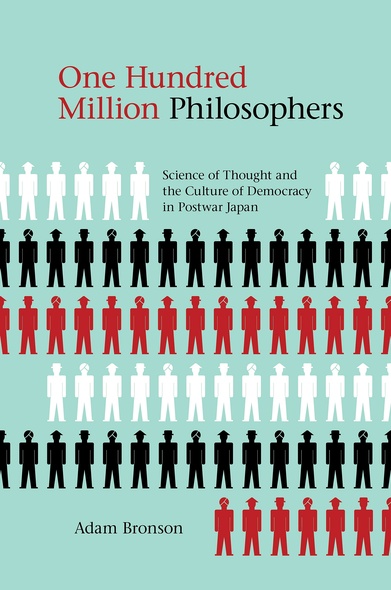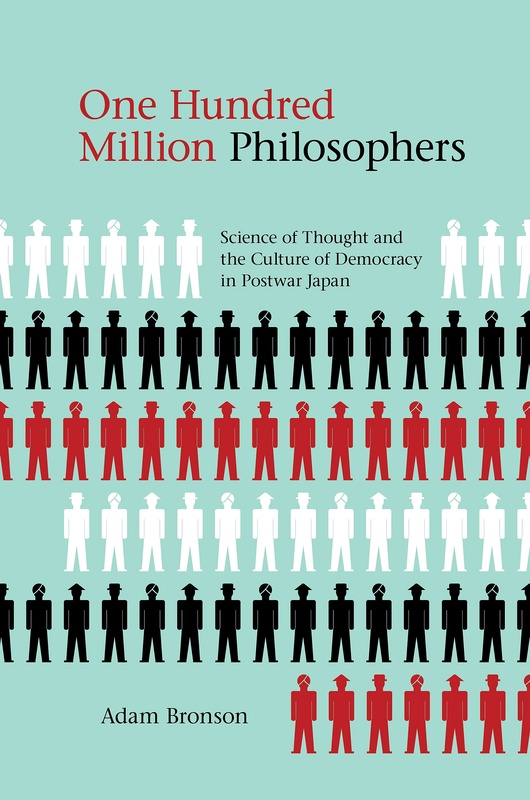One Hundred Million Philosophers
Science of Thought and the Culture of Democracy in Postwar Japan
After the devastation of World War II, journalists, scholars, and citizens came together to foster a new culture of democracy in Japan. Adam Bronson explores this effort in a path-breaking study of the Institute for the Science of Thought, one of the most influential associations to emerge in the early postwar years. The institute’s founders believed that the estrangement of intellectuals from the general public had contributed to the rise of fascism. To address this, they sought to develop a "science of thought" that would reconnect the world of ideas with everyday experience and thus reimagine Japan as a democratic nation, home to one hundred million philosophers.
To tell the story of Science of Thought and postwar democracy, Bronson weaves together several strands of Japan’s modern history that are often treated separately: the revival of interest in the social sciences and Marxism after the war, the appearance of new social movements that challenged traditional class and gender hierarchies, and the ascendance of a mass middle-class culture. This story is transnational in both connective and comparative senses. Most of the Science of Thought founders were educated in America, and they drew upon a network of American thinkers and institutions for support. They also derived inspiration from other efforts to promote a culture of democracy, ranging from thought reform campaigns in the People’s Republic of China to the Mass Observation study of the British working classes. By tracing these sources of inspiration around the world, Bronson reveals the contours of a transnational intellectual milieu.
Science of Thought embodied a vision of democratic experimentation that had to be re-articulated repeatedly in response to challenges that arose in connection with geopolitical events and social change, prompting the group’s evolution from a small research circle in the 1940s into the standard-bearer for citizen activism in the 1960s. Through this history, Bronson argues that the significance of Science of Thought lay in the way it exemplified democracy in practice. The practical experience of the intellectuals and citizens associated with the group remains relevant to those who continue to grapple with the dilemmas of democracy today.
Bronson honestly evaluates Science of Thought’s legacy, suggesting the rise of the middle classpartially invalidated its goals. Still, its intellectual diversity and longevity made it an influential voice in
Japan’s postwar discourse. ‘One Hundred Million Philosophers’ is a valuable portrait of the group and
its times.
This is a fascinating and impeccably researched investigation on the formative years of the Science of Thought, one of Japan’s most important intellectual groups. Adam Bronson does a marvelous job of linking the group’s emergence and expansion to prewar intellectual developments, the trauma and destruction of war defeat, the uncertainty and hope of the early postwar years, and the crises and upheavals of the early 1960s. Each chapter offers new insights into the group—its intellectual antecedents; members’ attempts to understand and interact with ‘ordinary' people in the wake of what they saw as the failure of intellectual culture in wartime Japan; and its project to understand human motivation, particularly in times of crisis.





